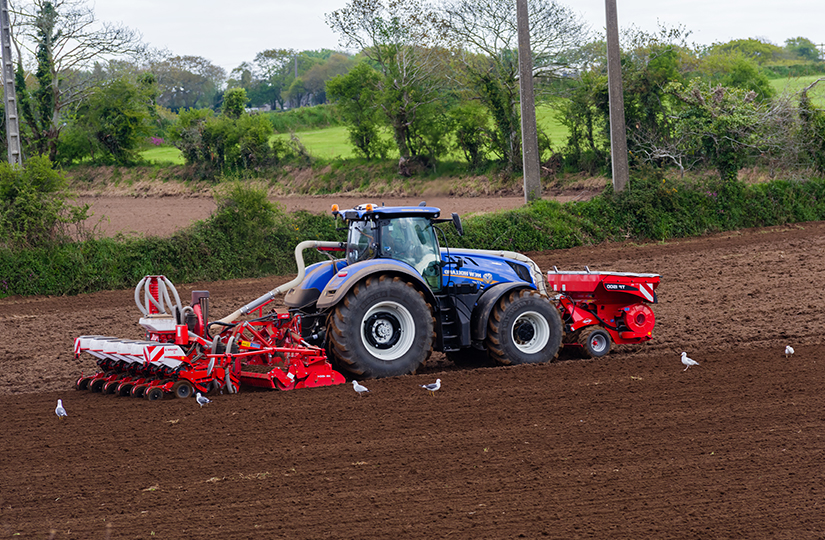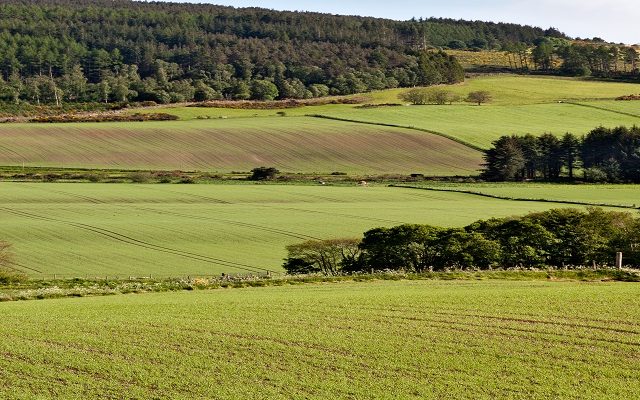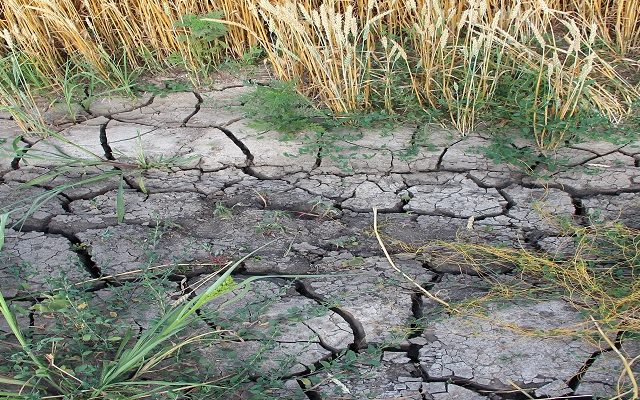Farming Update – COVID 19 Business Update
Welcome to this additional Farming Update for the whole of the UK. We want to maintain our connections with our readers in this time of uncertainty and keep you informed about subjects we might otherwise have discussed face-to-face. The aim is to release a short bulletin on a regular basis while there are restrictions on social interactions.
We would be delighted to receive feedback on this Update. Please contact Andrew Atkinson in England and Mary Munro in Scotland.
Covid-19
Our thoughts are with our clients and contacts at this unprecedented and difficult time in our personal and professional lives. We have posted some practical advice for rural businesses on our Rural Hub, which we will continue to update with practical, positive suggestions for rural businesses.
Many farms and estates have diversified into enterprises that involve tourism and recreation, and these are very much affected by the requirements of social distancing. The Government has launched a range of schemes to assist, primarily with business rates, grants (dependant on rateable value of the premises), and labour costs through the Coronavirus Job Retention Scheme (Furlough Scheme) which has been launched to pay 80% of the cost of a worker who has temporarily ceased work. This can offer a lifeline to both employer and employee.
Local food retailers, including farm and village shops, on the other hand, are for the most part finding themselves in great demand. Some are introducing delivery services for vulnerable customers and are playing a hugely positive role in their local communities.
The Prince’s Countryside Fund is inviting applications for emergency funding from farming and rural community support groups, who are providing assistance to counter the effects of isolation during the Coronavirus pandemic.
Groups can apply for grant funding of up to £2,500 if they:
- are providing emergency relief to vulnerable or isolated individuals or;
- are providing support to farmers and farm businesses affected by the Coronavirus pandemic or;
- are helping rural or farming communities to cope with the Coronavirus pandemic
For more information, follow the link: https://www.princescountrysidefund.org.uk/grant-giving-programme/grant-programme
There will be some who struggle more than others. Whether it is financial pressure or other anxiety, the Royal Agricultural Benevolent Institution in England Scotland and Wales is there to listen and help:
England : RABI Helpline 0808 281 9490 and website https://rabi.org.uk/
Scotland : RSABI Helpline 0300 111 4166 and website https://rsabi.org.uk/Home-Page
The AHDB has published guidance on its website for levy payers from each farming sector, with a series of FAQs relating to practical on-farm matters as well as market information and impacts on the food supply chain. www.ahdb.org.uk
Market Update
Arable Crops
After the most dreadful wet winter, soils have dried up with almost incredible speed across the country, and in some parts are nearly too dry. However, great progress has been made with spring work and a lot of beans, barley, spring wheat and oats are getting sown into decent, if rather cold, seedbeds. The relaxing of the three crop rule has made it simpler for farmers to plan spring drilling and maximise spring cereals acreages. The backlog of weed control in autumn crops is being dealt with and some T0 sprays are going onto wheats. There is now evidence of Yellow Rust in many parts of the country which will need knocking out, while Septoria is being held back by dry weather but is always ready to flare up in susceptible varieties if left uncontrolled. It is too early to say what disease pressure will be like this season.
The impact of COVID-19 on markets is very variable, and it seems as though we are entering a renewed period of volatility. Demand for bread (and therefore milling wheat) is high, but feed wheat is also benefitting from the demand for chicken and eggs. Although the supermarket shelves seem bereft of beer, consumers apparently drink less at home than when they go out, so the overall demand may drop. Wheat prices took a tumble after a sustained rise, but have since appeared to have stabilised for the time being at around £150/T for June and £155-£160/T for November 2020. The oilseed rape price has suffered with the falling oil price and is now around £310/T plus bonuses. With supply chains at risk of disruption, all are being encouraged to plan ahead and keep talking to suppliers.
Livestock
In the run up to the lockdown, a lot of lambs were sold which provided a plentiful supply to processors. Since then some lamb processors have stopped altogether due to staffing issues and auction marts are running with reduced throughput. Therefore, it is not surprising that the lamb market (live weight) plummeted by 25% during the second half of March. Deadweight prices are also down, with AHDB reporting an average price of 518.8p/kg for R3L grades on 2nd April. Although exports to the EU are continuing, demand is much reduced for the same reasons as in the UK. French retailers have been instructed by their Government to prioritise French products where possible, but AHDB reports that French lamb slaughterings are down to approx. 15% of their usual level for this time of year, which may enable UK product to retain a degree of market share. Challenges for the industry will be the transfer of product from the restaurant trade to retail which, according to consumer analysts, is more of a challenge for lamb (which is less popular) than for beef.
By early April beef prices had been holding up in the face of the crisis. Average deadweight steer price is approx. 347p/kg which is an increase of 2p/kg on the week and similar to this time last year. There has been a rise in demand – particularly of mince – due to panic buying but the long term effect of the lockdown is likely to be a fall in demand. The long wait for processors to get through backlogs of stock continues, but hopes that the supply chain would rely on home produced beef through the COVID-19 pandemic have been dealt a blow with the news that processor ABP is suppling 400 tonnes of Polish beef to supermarkets Sainsbury’s and ASDA. In response, the NFU noted that the quantities bought were relatively small, but urged retailers to support British producers to meet soaring consumer demand through the coronavirus lockdown. With restaurants closed, processors and suppliers are working hard to re-direct their products to retail, where cheaper cuts usually form the core offering, over more expensive cuts such as steaks. This, along with lost sales for roasting joints which are popular for family gatherings, is expected to cause problems with carcase balance.
According to AHDB 21% of beef and 15% of lamb sales volumes are sold through food service sector, so they are very important markets, particularly for the higher value cuts. Home delivery services, which many outlets have set up during the lockdown, will provide some demand, but this will only be a fraction of the total lost sales.
Milk
The milk market is experiencing significant challenges caused by the movement restrictions brought in to tackle COVID-19. The sudden changes to consumer behaviour are unprecedented in their speed and impact and it will take the markets time to catch up. Processors supplying coffee shops and caterers – notably Freshways and Pensworth – have seen orders plummet almost overnight, and the options available for diverting stock into retail outlets (where demand has been very strong) is limited because supermarkets source their stock from a single supplier. As a result, these processors are being forced to dump their stock onto spot markets which have fallen significantly as a result, and at a time of year when UK production rises due to the spring flush.
One affected processor has told its farmers that it can only pay 25% of the standard milk price until it receives emergency support from the Coronavirus Business Interruption Loan scheme, at which point it has indicated that payments will be brought up to date. In the short terms that means that farmers will receive only 6.25p/litre which will have a severe – and in some cases catastrophic – impact on cash flow. This will not, however, protect farmers from the fall in dairy commodity prices, and the NFU and DEFRA have identified that the crisis could cause long term damage to the sector. Efforts to protect the industry, so that it will be in a position to meet demand once the crisis has passed; this could include lifting competition rules and letting processors work together help meet retailer demand, and/or a temporary re-introduction of intervention buying to reduce the quantity of milk coming to the commodity market.
The surge in demand from supermarkets has led Muller to increase prices to suppliers by 1p/litre from 1st May. Analysts are not yet certain how much of the recent surge has been caused by panic buying, and how long the surge will last. It is expected however that demand for milk and cheese will remain strong for the duration of the current social distancing measures, while people work from home.
Health and Safety
Our Health & Safety Update comes out this week, read the full report here
One item for readers to bear in mind is the increased presence of children on farms while schools are shut. Please make sure all parents, whether farmer, staff, or other locals, do their best to prevent children coming into working areas. Remind yourselves and your staff to be extra vigilant especially as there is a lot of machinery on the move at the moment. Farmers are included as key workers and as such are entitled to continue to take their children to school during usual school hours, and throughout the Easter holidays.
Policy and Grants Matters
Basic Payment Scheme and Scottish Single Application Form
The deadline for applications to be submitted for BPS in England and SAF in Scotland currently remains unchanged – 15th May – although we understand that Ministers are discussing a possible extension to this. When we know more about this we will let you know, but in the meantime we are working to ensure that this process is carried out as smoothly as possible and meets the current deadline. Wales has extended their application deadline until 15th June. The same considerations apply for ELS/HLS and CSS agreements.
In terms of logistics, the overwhelming majority of schemes are completed and submitted on line, and where checks need to be carried out on the ground, this can be done in the majority of cases while observing the social distancing rules.
Countryside Productivity Small Grants Scheme
· The deadline for submitting claims has been extended to 31st July but Defra’s strong advice is to submit claims as soon as possible to avoid delays in processing payments.
Growth Programme – Round 3
- Over 3,000 expressions of interest were submitted, requesting over £350m, compared with a budget of around £60m.
- Defra’s advice is to make full applications as soon as possible, however, it is aware that it is more difficult to get quotes and other supporting information for a proposal due to COVID 19 so (i) it is trying to simplify the full application process (but advice is to continue with the current process at the moment) and (ii) it is seeking agreement with the EU to extend the deadline for spending on projects until after 31 December.
- Due to the high demand, the RPA does not think it will be able to assess projects within the 30 working day period and is now aiming for mid-May.
Agriculture Bill
- The Government’s aim is still to pass the Bill this summer, with no intention to change the planned policy.
- The start of the phasing out of BPS 2021 is ‘under constant review’ due to the impact of COVID 19.
Farm Labour Shortages
Fruit and vegetable producers in the UK, in common with most wealthier countries, are facing a dire shortage of seasonal workers this summer due to travel restrictions. The Financial Times reports that each year the UK welcomes up to 80,000 workers, many from Romania and Bulgaria, and in France and Germany the problem is more acute as they rely on almost 500,000 workers between them. The Schengen area has closed to outsiders for 30 days and further travel restrictions are in place within the bloc.
The first crop requiring the labour is usually asparagus from mid April, followed by soft fruit, and salads through to late September, with the peak labour demand expected in June. The CLA has estimated that 75% of the usual migrant workers will not be able to make it onto farms and has noted that of those that do, some are likely to contract COVID-19 and be therefore unable to work. To meet this demand, the CLA has called for a “land army” of UK workers, and in Europe similar efforts are being made to mobilise a new workforce. There is some evidence that the call is being met in the UK, with over 10,000 reportedly signed up for the ‘Feed the Nation’ campaign being run by three major labour providers. Agencies and large producers are targeting much of their effort towards staff in the hospitality and leisure sectors who have seen their usual work come to an abrupt halt. It is understood that furloughed workers can take up alternative employment where they have the express consent of their initial employer, but there is some uncertainty over this and various organisations are seeking clarification. Self-employed workers have no restrictions on continuing to work while claiming COVID-19 related support.
The British Growers Association is aiming to set up a central register to match workers with growers looking for labour, but it seems clear that more will need to be done to find enough workers to fill the positions, and the Government is being asked to provide further assistance to advertise positions and source workers. Individual businesses looking for temporary farm workers can get more information from the Association of Labour Providers (www.labourproviders.org.uk) which has set up a coronavirus support page.






